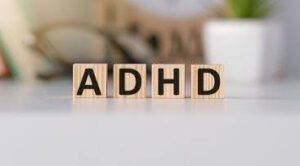4.16.25 – C&C News
“25 Years of Ritalin, Adderall Prescribed for ADHD Kids”
By Jeff Childers, Practicing attorney and well-known author

[COMMENTS FROM DONNA GARNER: To read my testimony as a classroom teacher presented to Congress 25 years ago in which I tried to alert our country to the vast dangers of Ritalin, Adderall, and the misdiagnosis of ADHD, please go to this link: 4.15.25 -- “ADHD Among Classroom Students – My Testimony to Congress 25 Years Ago” -- By Donna Garner -- https://donnagarner.org/4-15-25-adhd-among-classroom-students-my-testimony-to-congress-25-years-ago-by-donna-garner/
++++++++++++++++++++
On 4.14.25 the New York Times (which had for many years repeatedly promoted the use of Ritalin or Adderall for ADHD students) published an article entitled - “Have We Been Thinking About A.D.H.D. All Wrong?”
Jeff Childers wisely pointed out that there has been “no bigger cheerleader and ardent defender [of Ritalin and Adderall] than the New York Times itself."
Childers believes that because the NY Times knows Trump’s new Health and Human Services Sect. [RFK, Jr.] is refocusing the public health agencies on “real chronic conditions,” the NY Times hopes to get back some of its readership by “jumping on the “bandwagon.”
Childers pointed out that “…after twenty-five years…an eye-watering 23% of boys —nearly 1 in 4— are now taking Ritalin or Adderall for the ‘condition.’
They’ve actually cured “NOTHING.”
More statements from Jeff Childers, C&C News:
Unsurprisingly, by 2022, 18 million 30+-year-olds were also hooked. Presumably, it’s even more now…
Ritalin and Adderall are pharmaceutical-grade stimulants from the amphetamine family.
Researchers have known since the early 2000’s that both drugs have a horrifying side-effect: THEY STUNT KIDS’ GROWTH.
“Children who took Ritalin for an extended period,” the Times reported, “grew less quickly than the nonmedicated children did.”
At the end of a 36-month study, patients who had consistently taken stimulant medications were, on average, MORE THAN AN INCH SHORTER than the patients who had never received medication.
That’s not all.
Last year, a study in The American Journal of Psychiatry found that even a medium-strength daily dose of Adderall MORE THAN TRIPLED a patient’s chance of developing PSYCHOSIS OR MANIA.
A higher dose rocketed the risk to an astonishing 500%.
Prepare to be enraged.
The Times blandly reported that, despite decades of study and mountains of prescription amphetamines, the experts still have no theory for how it supposedly works.
The only consistent observation seems to be that kids’ (mostly boys) behavior “improves” once they start “warming to the ‘golden glow’ of chemical stimulus.”
Despite the risks and the lack of any discoverable mechanism of effect, WebMD recently advised parents to “problematize” their children’s ADHD to encourage them to take their medicine.
“To accept treatment, teens need to feel ADHD as problematic, as a pain in their life that limits and controls them,” the medical website [WebMD] sagely advised.
In other words, FEAR.
Another WebMD article penned by a Harvard researcher advised parents TO TOLERATE HORRIBLE SIDE-EFFECTS FROM THE TREATMENT.
“Parents should know that not all personality changes sparked by medication are negative,” the Harvard professor advised.
“If a child known for his sense of humor seems ‘less funny’ on medication, it could be that the medication is properly inhibiting him.”
Or it could be that Harvard is a black hole of failure that should be immediately shut down. Just saying.
Perhaps worst of all, the Times suddenly discovered a legion of long-overlooked studies suggesting that amphetamine treatment for ADHD doesn’t even work.
One U. Penn. study gave a series of cognitive tests to students on Ritalin and compared their scores to students not taking the drugs.
“The ones who took the medication,” the Times reported, “didn’t do better on any of the tests than the ones who took the placebo, but the ones who took Adderall BELIEVED they had done better.”
It tricks you into thinking it’s working.
Or at least, you feel good about it not working.
A 2022 Florida study reached a similar conclusion, finding that the Ritalin affected BEHAVIOR but NOT ACADEMIC PERFORMANCE.
“Children taking Ritalin worked faster and behaved better in the classroom than those in the placebo group,” the Times admitted.
“But they didn’t learn any more than the control group.”
The researchers’ conclusions were stark.
“Although it has been believed for decades that medication effects on academic seatwork, productivity, and classroom behavior would translate into improved learning,” the scientists wrote drily, “we found NO SUCH TRANSLATION.”
Worst of all, a 2023 Australian study gave half the kids Ritalin and tested both groups on something called a “knapsack test.”
It’s a computer game in which the kids drag digital items in and out of a knapsack trying to maximize the contents’ dollar value, making tradeoffs for weight and size.
The Ritalin kids did WORSE than the unmedicated students, even though the drugged children LOOKED busier.
“Their choices didn’t make much sense — they just kept pulling random items in and out of the backpack,” the Times said.
“To an observer, they appeared to be focused, well behaved, on task,” the paper reported, “but in fact, they weren’t accomplishing anything of much value.”
…